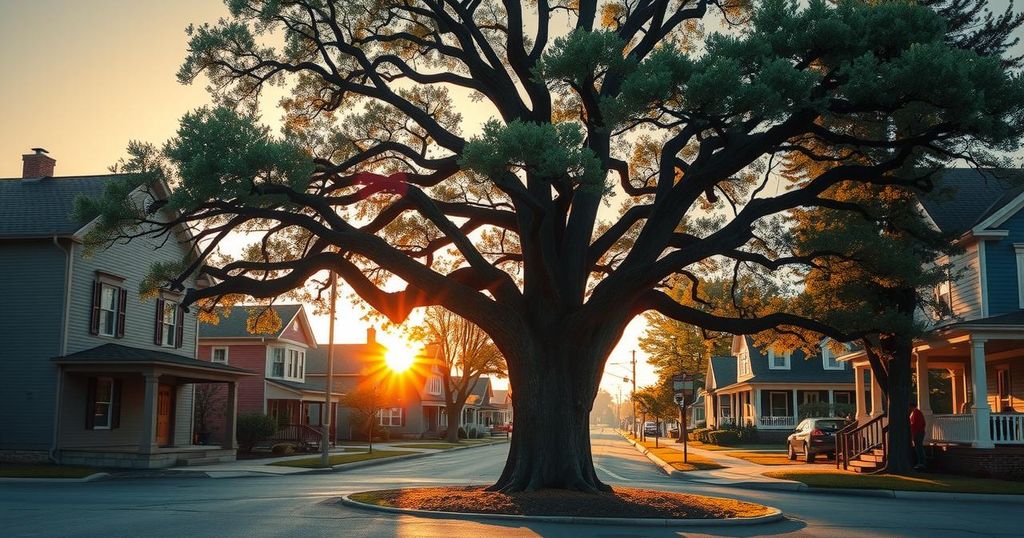Historical Marker Honors Liberia: A Historic Black Neighborhood in Florida

Earl Garnet Beneby highlights the rich history of Liberia, a historic Black neighborhood in Hollywood, Florida, during the unveiling of a state historical marker. The area, established during segregation, fostered a resilient community that produced notable musicians and had a deep cultural impact. The initiative recognizes Liberia’s contributions and emphasizes the need to educate younger generations about its significance.
Earl Garnet Beneby passionately recounts the history of Liberia, a historically Black neighborhood in Hollywood, Florida. The neighborhood is known for its significant sites, such as King’s grocery store and the former home of Robert Mitchell, which served Black entertainers during segregation. On a recent Saturday, Beneby was among gathered individuals to unveil a Florida state historical marker, recognizing the community’s contributions, including notable musicians like Sam Cooke and B.B. King. The event coincided with Hollywood’s centennial celebrations, enhancing Liberia’s historical significance.
Beneby, now 77, maintains a deep connection to Liberia, where he was raised by Bahamian parents. The efforts to establish the historical marker reflect Liberia’s vibrant history, including its establishment amid segregation, which fostered self-sufficiency among its Black residents. Clive Taylor, president of the Hollywood Historical Society, emphasized the neighborhood’s resilience and cultural contributions, stating, “Established during segregation, Liberia became a self-sufficient neighborhood where Black residents… built homes, businesses and places of worship.”
The ceremony took place at the former center of Black businesses in Liberia, now occupied by modern structures such as a municipal building. Beneby reminisced about the strong community bonds from his youth, where churches, schools, and local interactions were intricately linked. He noted the importance of sharing this history with younger generations, emphasizing, “It’s a story that needs to be told.”
Hollywood’s history began with Joseph Young, who founded the city in 1925 and planned infrastructure with an awareness of its Black population. He named Liberia after the African nation established for freed slaves, providing roads and electricity that helped create a thriving community. Kitty Oliver, a veteran journalist, remarked, “To understand and appreciate Liberia is to appreciate something… created because of Jim Crow segregation.”
Over the years, Liberia became a hub for Black families, notably those who migrated from the southern United States alongside Bahamian immigrants. The community faced various challenges, including neglect and systemic barriers, yet remained a dynamic area rich in culture and history. Today’s residents can trace a lineage of care and shared resources, with Henry Graham recalling how community members selflessly looked after one another despite limited medical access.
Though Liberia experienced decline from the 1970s through early 2000s, it has retained a predominantly Black demographic while evolving into a multicultural hub. The Hollywood Historical Society’s marker not only commemorates the past but also addresses contemporary discussions on the importance of Black history. Graham criticized current trends of limiting Black history in education, asserting, “Why do you put the brakes on telling the true history of Blacks?”
The unveiling of the historical marker for Liberia underscores the neighborhood’s resilience and cultural legacy amid segregation. Efforts to recognize its significant history reflect broader conversations about Black history education in contemporary society. Through community anecdotes and memories, the importance of preserving and sharing such histories remains crucial for future generations.
Original Source: www.miamiherald.com






